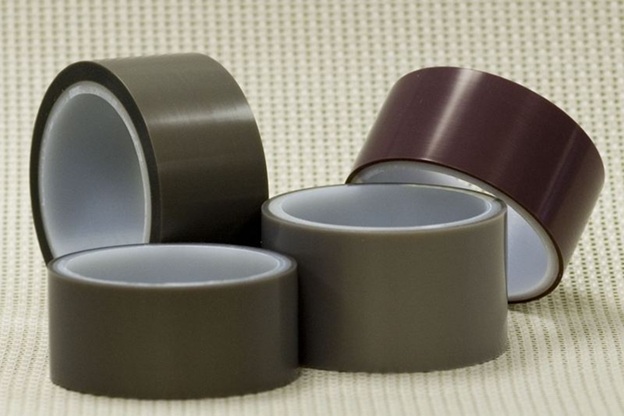The process of reprogramming the electronic control unit of a vehicle, known as ECU remapping, is increasingly popular among motorists. It involves adjusting the software to change the way the engine works, including fuel injection, timing, and boost pressure. In recent years, ECU services have gained popularity among motor professionals.
As car enthusiasts seek to improve the performance of their vehicles. However, there are still many misconceptions about the process, which this article aims to address.
“Remapping Is Just A Kind Of Tuning”
One of the most common misconceptions about ECU remapping is that it is just a type of tuning. While tuning and remapping are similar, they are not the same thing. Tuning involves making small adjustments to the engine’s parameters to improve its performance.
By contrast, remapping involves rewriting the software to change the way the engine works fundamentally. It is a more complex process that requires specialist knowledge and equipment.
“All Performance Improvements Are Purely Cosmetic”
Another myth about ECU remapping is that all performance improvements are purely cosmetic. In fact, ECU remapping can improve the performance of a vehicle in many ways. This includes increasing horsepower and torque, improving throttle response, and reducing turbo lag.
These improvements can result in better acceleration, top speed, and fuel economy. So, remapping is no ordinary readjustment that merely follows trends. Its popularity is rooted in proven performance benefits.
“It Reprograms Vehicles Outside Of Design Parameters”
Some people believe that ECU remapping is an illegal, unsafe practice that involves reprogramming vehicles outside of their design parameters.
The truth is that ECU remapping involves optimizing the engine’s software to make it work more efficiently within design parameters. The remapping process does not involve making any physical changes to the vehicle or its components.
“It Reduces The ECU’s Capability To Function Properly”
Another misconception about ECU remapping is that it reduces the ECU’s capability to function properly. Remapping actually involves optimizing the ECU’s software to make it work more efficiently. In fact, many ECU services include diagnostic checks and tests to ensure that the ECU is functioning correctly.
“The Potential Of Major Damage Is Huge”
Some people are concerned that ECU remapping can cause major damage to the engine or other components of the vehicle. It’s certainly plausible that there remains a risk involved with any modification to a vehicle’s performance.
However, the potential for major damage is minimal when the remapping is done by a reputable and experienced technician. In fact, many ECU remapping services offer warranties and guarantees to cover any damage caused by the remapping process.
“You Can Achieve A Select Few Results”
Another misconception about ECU remapping is that it can only achieve a select few results. In reality, remapping can be customized to achieve a wide range of results, depending on the customer’s needs and preferences.
It doesn’t matter whether the goal is to improve acceleration, fuel economy, or top speed. A skilled technician can tailor the remapping process to meet the customer’s specific requirements.
“Remapping Is Only For More Powerful Models”
Finally, some people believe that ECU remapping is only for more powerful models. However, this is not true. ECU remapping can benefit vehicles of all makes and models, from entry-level hatchbacks to high-end sports cars.
Perhaps the goal is to improve fuel economy, or maybe it’s for boosting performance. Remapping can offer significant benefits to drivers of all kinds of vehicles.
Conclusion
To summarize, ECU remapping is a safe and effective way to improve the performance of a vehicle. It involves optimizing the engine’s software to make it work more efficiently, resulting in better acceleration and top performance.
When done well. it is a safe, reliable, and effective way to improve your vehicle’s efficiency. So, consult a pro, and don’t let these misconceptions deter you from unlocking your car’s true potential.

 Fuel Card Data: The Key to Smarter Fleet Management and Cost Control
Fuel Card Data: The Key to Smarter Fleet Management and Cost Control  Car AC Repair: Diagnosing and Fixing Weak Airflow
Car AC Repair: Diagnosing and Fixing Weak Airflow  How Exotic Car Leasing Works: A Beginner’s Guide
How Exotic Car Leasing Works: A Beginner’s Guide  Red Flags to Watch for at Any Car Dealership
Red Flags to Watch for at Any Car Dealership  PTFE Films in Automotive Wire Harness Protection
PTFE Films in Automotive Wire Harness Protection  How Weather Conditions Affect Car Headlights
How Weather Conditions Affect Car Headlights  Importance of Car Door Inspections During Servicing
Importance of Car Door Inspections During Servicing  Essential Role of Household Battery Backup for OSA Patients and Introducing Jackery Explorer 1000 Plus Portable Power Station
Essential Role of Household Battery Backup for OSA Patients and Introducing Jackery Explorer 1000 Plus Portable Power Station  The Importance of a Spacious Interior in a Modern Family SUV
The Importance of a Spacious Interior in a Modern Family SUV 




